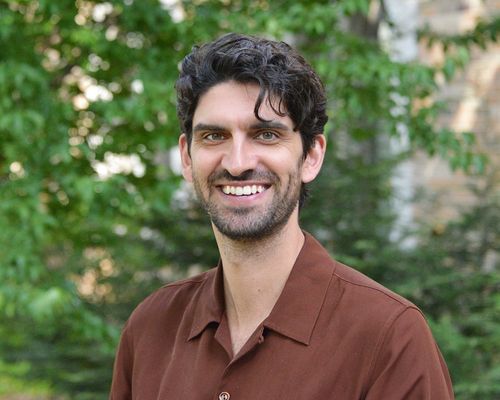Early Conversations Explore Research and Inter-Program Collaboration for Students in Consortium for Catholic Higher Education in Prison
A small group of members of the Consortium for Catholic Higher Education in Prison have begun examining what it might look like for students in Catholic Higher Education in Prison (HEP) programs across the country to participate in collaborative research projects and publications.
Representatives from programs at Loyola University New Orleans, Boston College, Marquette University and the University of Notre Dame have begun a conceptualization phase to explore how Catholic HEP programs might foster the kind of inter-institutional research collaborations common on traditional campuses. This effort seeks to create new pathways for incarcerated students to participate in meaningful, rigorous, and interdisciplinary scholarly work — across programs and across the country.
While still in development, shared principles for the project include: expanded research opportunities for incarcerated students; increased capacity for students to work and publish on foundational concepts such as democracy, citizenship, and social well-being; interdisciplinary inquiry; the indispensable place of the arts and humanities; the promotion of accredited research fellowships; advancement of the human person and shared humanity; fostering dialogue between programs; working collaboratively with the broader college-in-prison field; and strengthening the educational and community-building missions of existing HEP programs.
One primary material goal emerging from these conversations is a book project and paired conference on Citizenship. This project, bringing together research and writing from incarcerated students, faculty and relevant stakeholders across disciplines on the notion of citizenship, would address questions such as: What responsibilities do citizens have to their communities? What responsibilities do governments have to their citizens? How does higher education — especially in prison — cultivate citizenship and civic identity? What roles do technology, media and the arts play in defining and challenging concepts of citizenship? And, crucially, who gets to define what it means to be a citizen? The voices of incarcerated and formerly incarcerated students would be involved at the planning, writing, editing and publishing phase of the book and subsequent convening.
Ultimately, the longer-term aim of this work is to create a network of incarcerated scholars and thinkers across the country working together on projects that not only document this pivotal moment in higher education in prison, but help shape knowledge around citizenship, democracy and justice. While the final prospectus for the project is still evolving, there is a growing sense that the moment is ripe for incarcerated scholars to be recognized more fully as researchers and as citizens, and for incarcerated voices to have a say in examining and defining what democracy and citizenship mean, as we grapple with those concepts collectively as a society.
Would you like to donate to JPEN?
Visit the Jesuits of Central & Southern Province support page to learn more about how you can contribute.
To designate your gift to the Jesuit Prison Education Network, scroll down the webpage to "Donation information" to select a gift amount. Then scroll down to the "Designation" box, click on it, and select JPEN from the drop-down menu.
